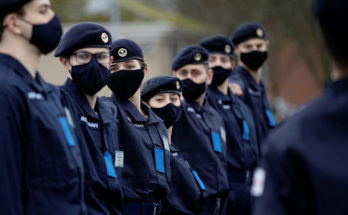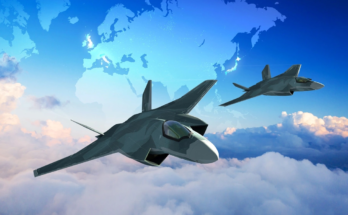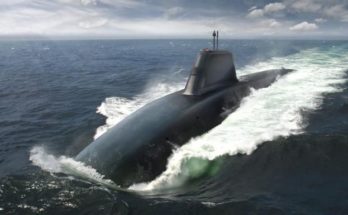
Interviewer: Commodore Andy Asheville-Smith
Theme: Achieving Integrated Force
Speakers: Brigadier General David Walsh, U.S. Marine Corps; Brigadier Mark Totten, Royal Navy
DSEI’s Wednesday interview with Brigadier General David Walsh of the U.S. Marine Corps and Brigadier Mark Totten of the Royal Navy explored the future of force integration and adaptation to the changing global security environment. With the war in Ukraine looming in the background, both officers attested to the importance of learning and acclimatizing to the conflicts of tomorrow.
Agility and awareness featured heavily in both forces’ designs for the future. Both speakers outlined the importance of maintaining global expeditionary capabilities in the age of renewed great power competition, particularly in Europe and the Indo-Pacific, only made possible by resilient and flexible logistics and supply chains, which sustain meaningful projection abroad. As such, interoperability, in doctrine and equipment, has been a foundational part of the Marine Corps and Royal Navy’s development. As the U.S. and its allies confront increasingly militarized rivals in the Pacific, Middle East and Europe, the ability to operate simultaneously in multiple theaters is imperative.
The Marine Corps and the Royal Navy commandos have pursued agility at the organizational level as well, with both branches clearly moving toward smaller, more dispersed units. Bolstered by electronic warfare (EW) abilities; intelligence, surveillance and reconnaissance (ISR) measures; and other non-kinetic force multipliers, the services have hoped to capitalize on the information level to allow smaller, more mobile units to exploit their environment to the highest efficiency. A key lesson both men acknowledged from the war in Ukraine was the importance of individual fighters who, if empowered, can become difference-makers on the battlefield. A quality-over-quantity approach to warfighting was evident from both speakers.
Brigadier Totten emphasized that one of the greatest strengths the U.K. and U.S. enjoy is their diverse network of global allies. The internationality of NATO and its partners enables a thorough presence abroad, which provides a tremendous advantage over states like Russia and China, which have struggled to establish similarly comprehensive military and political ties at the global level.
The officers discussed goals for the future, including a mutual desire for inter-service, and eventually inter-military, cross-domain operational pictures. In the age of mass information, integrating data sharing between organizations is a major challenge. Technology like artificial intelligence (AI) and machine learning can help with data management and sharing, as well as providing viable options for decision-making, but is not a substitute for capable personnel. Through interoperability measures and new technology, amalgamated information spaces shared between services will ideally allow for faster decision-making based on more accurate pictures of the operational space.
As both services and their partners embark on modernization missions for the 21st century, new strategies are in development based on the new realities of warfighting. Flexibility, awareness and interoperability seem to be at the core of these new doctrines, augmented by both advanced technology and an age-old reliance on quality individuals. Along with their allies, the U.S. and U.K. armed forces are deterring through evolution and preparing for the challenges of tomorrow.
Tom Freebairn is a weapons analyst with Military Periscope covering naval affairs and maritime systems. He pursued an undergraduate degree in International Relations and Modern History, followed by a master's in Middle East, Caucasus, and Central Asia Security Studies from the University of St. Andrews. His master's thesis focused on the relationship between oil and separatist politics in Northern Iraq. Tom's interests include the politics of energy, ethnic separatism, the evolution of naval warfare, and classical history.




